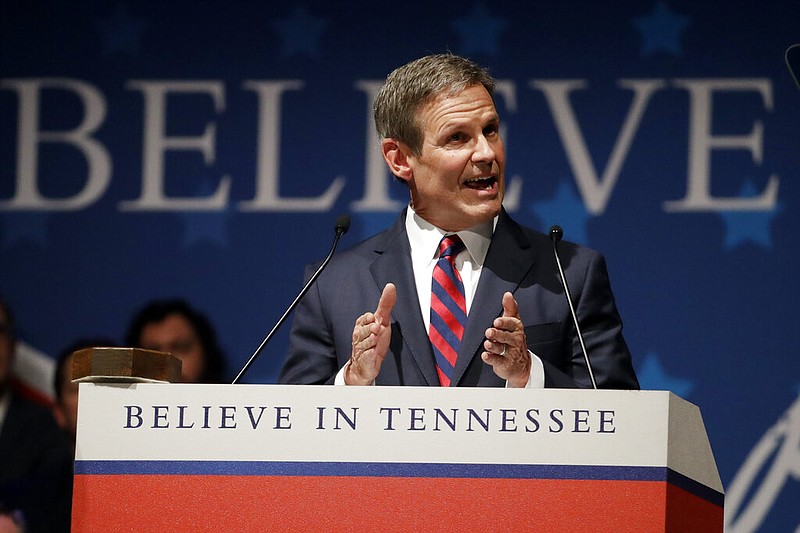Count us among those who'd like to see more transparency where it comes to state business tax credits.
Such transparency not only tells the public how its money is being used - public money is "financing" the credits, after all - but it allows other businesses to know what is possible where it comes to such credits. The other businesses may not always be matched credit for credit, but it allows them to know the state's thinking on issues involving economic and community development.
Bills seeking to create such transparency - and supported variously by a bipartisan group of lawmakers, the Tennessee Coalition for Open Government, the conservative Americans for Prosperity and the free-market Beacon Center of Tennessee - have been drafted for discussion this winter and spring in the Tennessee state legislature.
"If you take tax dollars," Mark Cunningham, a spokesman for the Beacon Center, told the USA Today Network-Tennessee, "then we deserve to know if it's a good investment or not."
Our interest is in the state business deals that get made, not deals that are put together in order to bid on a proposal (such as on the recent Amazon second headquarters search). With proposals, we believe it is often incumbent that the state not reveal its bid because it is frequently in competition with other states. If one state knew what another was offering, it would be easy for one to outbid another or start a bidding war that could artificially inflate the cost of a proposal.
Current Tennessee law declares that all "tax information" is confidential, which includes tax credits (for the likes of hiring new workers and buying industrialized machinery), even when given under discretionary circumstances. Indeed, even whether or not businesses qualify for a state tax incentive program is confidential, though exceptions can be made by the commissioners of Economic and Community Development Department and the Revenue Department.
The state, for instance, did not release any information about the tax credit incentives money management company Alliance Bernstein received last year when it decided to move its headquarters to Nashville.
So how much money are we talking about?
In fiscal 2017, the last full year for which figures are available, businesses claimed more than $218 million in tax credits, including $95 million for the Industrial Machinery Tax Credit taken by 1,800 businesses.
At least 20 states disclose the names of companies that receive tax credits and how much they receive, according to research by the Tennessee Coalition for Open Government and Good Jobs First, a Washington, D.C.-based advocacy group, but not all of the states use tax credits for economic development.
Among Southern states often in competition with Tennessee for economic development projects, Florida, Kentucky, Mississippi and North Carolina post such information online. On the other hand, Alabama, Georgia and South Carolina do not release such information.
"Without knowing who gets the credits," Deborah Fisher, executive director of the Tennessee Coalition for Open Government, told USA Today Network-Tennessee, "we don't know how the [tax credits] policy is working. Are businesses in big cities getting the bulk of the credits? Are businesses in rural areas applying and getting the credits?"
We might add, "Are businesses associated with the same small number of people getting deals? Are minority businesses getting deals? Are businesses associated with people in highly placed positions getting deals?"
"It's critical to improving public trust that economic incentives are genuinely good for the state and not sweetheart deals," said state Sen. Jeff Yarbro, D-Dyersburg, the minority leader. "We need to use a combination of greater transparency and greater oversight to build that trust."
New Tennessee Gov. Bill Lee, who made openness and transparency in state government a campaign promise, issued an executive order last week superseding former Gov. Bill Haslam's executive order on the same subjects. In it, he directed commissioners of every executive branch of government to take steps to comply with legal requirements related to openness, transparency and accountability in their specific areas.
On making public the name of businesses receiving tax credits, he later said he would be supportive, and he said he would be supportive of making public the amounts they received "at the right times."
What Lee elaborated, about releasing the amounts after a deal is struck and not before, goes along with our thinking.
"You know," Lee said, "if it may not allow a job-creating deal to come to Tennessee, then we certainly would be smart about that so that we bring jobs here."
Tennesseans should want to be smart about all their government-related business deals, determining if they are fairly dispersed, if they are bringing the jobs promised and if they are generally benefiting the state. We believe more transparency on the back end of deals would help make those determinations.
